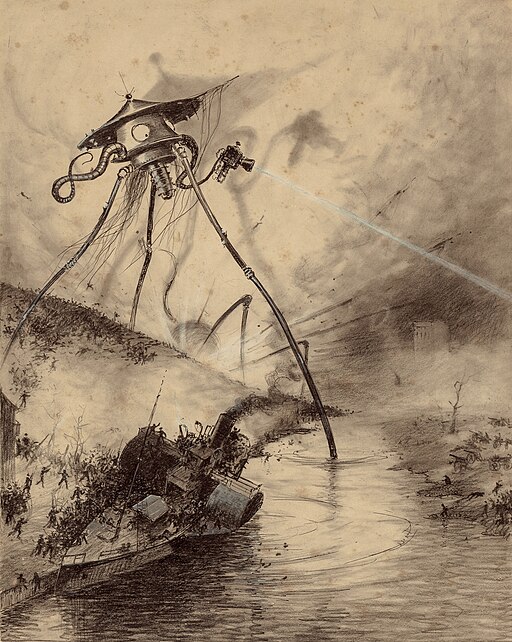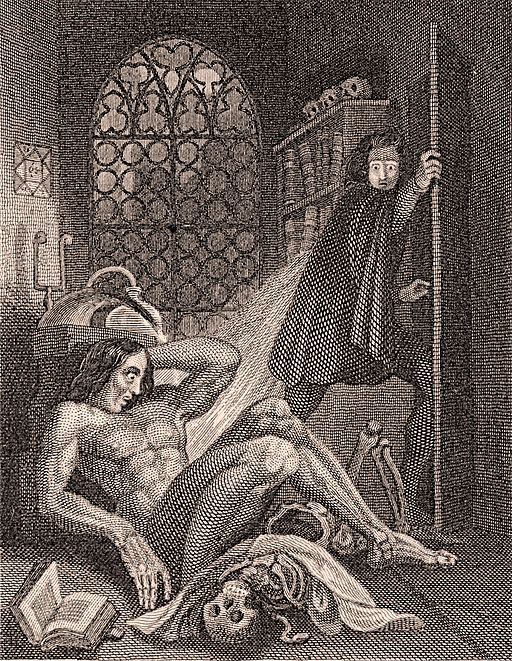Following the Science Fiction
 |
| Dr. Isaac Asimov by Phillip Leonian from New York World-Telegram & Sun (Public domain, via Wikimedia Commons) |
Today (2 January) is celebrated as National Science Fiction Day in the USA and, quite possibly, many other countries too although it is not officially recognised as a holiday in any country, territory or jurisdiction that we are aware of.
The day does coincide, however and allegedly, with the birth of the famed, 20th century science-fiction writer, Isaac Asimov but even this is difficult to pin down, as the precise date of Asimov's birth is unascertained except that he "was born was born in Petrovichi, Russian SFSR on an unknown date between October 4, 1919 and January 2, 1920 inclusive" and even for this much information, we are relying upon Wikipedia! Nevertheless, it does seem to be established that Asimov chose the date of 2 January to celebrate his birthday. Strange but not entirely inappropriate perhaps, that a day that is linked to 'science' is, nevertheless, shrouded in speculation, a lack of precision, a dearth of evidence and questionable sources!
 |
| An alien invastion featured in H.G. Wells' novel, The War of the Worlds as illustrated by Henrique Alvim Corrêa (Public domain, via Wikimedia Commons) |
Asimov's family emigrated to the United States when he was just three years old. He would go on to have a career as professor of biochemistry at Boston University but also as a prolific writer of both fiction and non-fiction. He is probably most widely known for the Three Laws of Robotics that he devised and, which most people will be familiar with from the 2004 motion picture, I Robot. As promulgated in his 1942 short story Runaround, the three rules are generally summarised along the lines of:
- A robot may not injure a human being or, through inaction, allow a human being to come to harm.
- A robot must obey the orders given it by human beings except where such orders would conflict with the First Law.
- A robot must protect its own existence as long as such protection does not conflict with the First or Second Law.
 |
| Illustration for 1831 edition of Mary Shelley's Frankenstein by Theodore Von Holst (1810-1844) (Public domain, via Wikimedia Commons) |
What actually defines science fiction as a literary genre is a matter of some debate, as is the task of tracing the origins of it, which some would date back to ancient mythology. It could be considered that science fiction (together with related genres of fantasy, horror, superhero fiction) represents a kind of modern mythology, dealing with futuristic concepts and trajectories, to the point of being more concerned with the ultimate fate of human civilisation rather than its origins. Advanced science and technology, space exploration, time travel, parallel universes, and extra-terrestrial life are among the themes that commonly feature.
 |
| Greenleaf Publishing / Malcolm Smith Public domain, via Wikimedia Commons |
Mythology and the oral tradition aside, a literary timeline of science fiction, the authors and their works considered to fit the genre would surely include Jonathan Swift (Gulliver's Travels), Mary Shelley (Frankenstein and The Last Man), works of Edgar Allan Poe and Jules Verne, H.G. Wells (The Time Machine, The War of the Worlds, The Island of Doctor Moreau). In the 20th century meanwhile, science fiction writers of note would include (in addition to Isaac Asimov, already mentioned) the likes of Robert A. Heinlein, Arthur C. Clarke, Ray Bradbury, Kurt Vonnegut.
Those interested in the genre of science fiction might find that Days of the Year calendar has some interesting suggestions as to how to go about marking the occasion that is National Science Fiction Day.






No comments:
Post a Comment